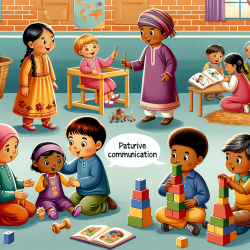The migration of international medical graduates (IMGs) to countries like the USA is a phenomenon with profound implications for global healthcare systems. The study "International medical graduates in the USA: a qualitative study on perceptions of physician migration" offers valuable insights into this complex issue. By examining the experiences and perspectives of IMGs, practitioners can gain a deeper understanding of the factors influencing migration and how these insights can be leveraged to improve skills and contribute to effective solutions.
The Complex Landscape of Physician Migration
Physician migration is influenced by a myriad of factors, including economic conditions, political environments, and professional opportunities. The decision to migrate often stems from individual circumstances where survival and professional growth are prioritized. For instance, a practitioner from East Asia highlighted the stark difference in living standards between their home country and the USA, emphasizing survival as a key motivator for migration.
Moreover, political instability can drive physicians to seek refuge in more stable environments. An internist from the Middle East described migrating due to an untenable political situation at home. Such narratives underscore the pragmatic nature of migration decisions, which are often made in response to challenging circumstances rather than mere attraction to the host country.
The Impact of Migration on Professional and Personal Lives
Migrating to a new country can significantly alter a physician's ability to return home. Many IMGs find that both they and their home countries have changed during their time abroad, making reintegration challenging. This realization often leads to a permanent settlement in the host country. An internist from sub-Saharan Africa expressed how migration had changed them personally and professionally, making a return home unlikely.
The acclimation process is fraught with conflicts as IMGs navigate their new environment while grappling with guilt over leaving their home countries. A pediatrician from sub-Saharan Africa described feeling trapped by responsibilities and expectations, highlighting the emotional toll of migration decisions.
The Role of Policies in Shaping Migration Decisions
Policies in both home and host countries play a significant role in influencing physician migration. Licensing restrictions and educational policies can deter physicians from returning home after training abroad. For example, a pediatrician from sub-Saharan Africa noted that despite their training in the USA, they would need additional qualifications to practice in their home country.
This highlights the need for policies that support IMGs in maintaining ties with their home countries while allowing them to thrive professionally abroad. Collaborative efforts between nations can facilitate capacity building in limited-resource countries and create pathways for IMGs to contribute meaningfully to global health systems.
Actionable Insights for Practitioners
- Engage in Continuous Learning: Practitioners should actively seek opportunities for professional development that align with global healthcare trends. Attending conferences and webinars can provide valuable insights into emerging challenges and solutions.
- Advocate for Supportive Policies: Engage with policymakers to advocate for policies that address the needs of IMGs and support sustainable healthcare systems globally.
- Foster Global Collaborations: Building networks with international colleagues can enhance knowledge exchange and contribute to capacity building in resource-limited settings.
- Reflect on Personal Motivations: Understanding personal motivations for career decisions can lead to more informed choices that align with long-term goals.
The study underscores the importance of understanding physician migration as part of a broader conversation about global health workforce challenges. By implementing these insights, practitioners can enhance their skills and contribute to developing effective solutions that benefit both local and global healthcare systems.
To read the original research paper, please follow this link: International medical graduates in the USA: a qualitative study on perceptions of physician migration.










